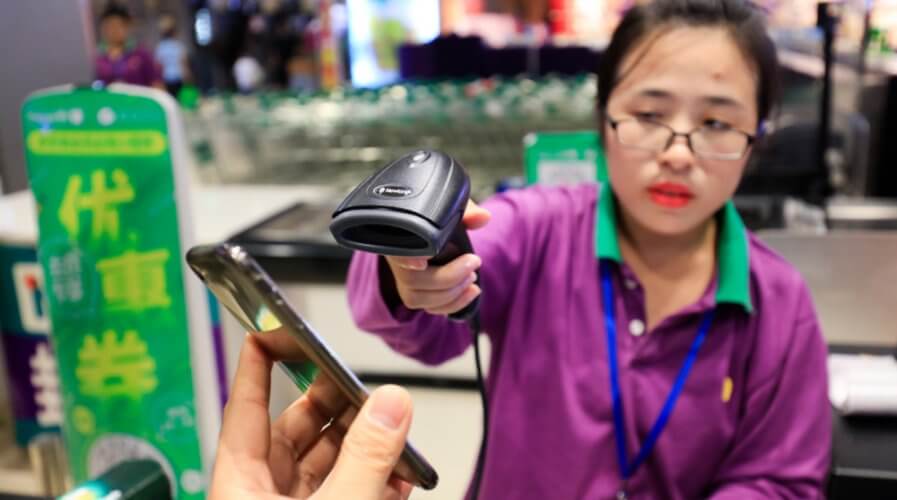
Chinese tourists are spending overseas without touching cash. Source: Shutterstock
Chinese travelers spending overseas during holidays
CHINESE tourists have been spending significantly more overseas using mobile payments during their week-long public holiday between October 1 and 7.
Across the week, travelers have been spending most in Bicester Village outlet shopping center in the United Kingdom, Dotonbori commercial zone in Osaka, and Australia’s Sydney Airport.
The destinations saw a 90-fold, 70-fold, and 55-fold increase in payments using Alipay respectively, according to a recent report released by Alibaba.
Other popular shopping destinations highlighted on the list include Paris Boulevard Haussmann, Bangkok Suvarnabhumi Airport, Toronto Chinatown, Kuala Lumpur International Airport, The Mall Firenze, Flushing New York, and Seoul Myeong-dong shopping street.
On average the usage of Alipay in the aforementioned locations have also increased by tens of times this year, the report said.
Before the holidays, the mobile payment platform also announced “40 outbound destinations without wallets”. All 10 locations that saw a spending surge were featured on the 40 locations as well.
Alibaba, as well as rival Tencent, have been aggressively expanding their services across various Chinese tourist hotspots overseas, as the domestic market becomes saturated.
Both companies were the driving force behind China’s transition to mobile payments.
Today, Wechat Pay commands nearly 39 percent of the market. Alipay remains in the lead accounting for more than half of all mobile payments transactions in China, according to a recent report.
Overseas, Alipay has obtained payment licenses in 36 countries/regions as of 2017. Similarly, WeChat Pay gained approval for providing payment services in more than 20 countries/regions.
Meanwhile, China’s outbound tourism has been growing rapidly, with 135 million people traveling overseas spending over US$261 billion in 2016 alone, according to World Bank data.
Shopping without cash, even when traveling, has become the norm for a lot of Chinese consumers.
A Nielsen report stated that 90 percent of Chinese travelers said they prefer to make payments with mobile phones as it is more convenient and secure, according to the press release by state newswire Xinhuanet.
Consumers also noted that they could save more money due to the promotional activities available via mobile.
Additionally, Alipay’s data also showed that the popularity of using mobile payments aren’t limited to only the younger generation. There was a 90 percent increase in payments made by people born in the 1960s during the holiday week.
READ MORE
- Ethical AI: The renewed importance of safeguarding data and customer privacy in Generative AI applications
- How Japan balances AI-driven opportunities with cybersecurity needs
- Deploying SASE: Benchmarking your approach
- Insurance everywhere all at once: the digital transformation of the APAC insurance industry
- Google parent Alphabet eyes HubSpot: A potential acquisition shaping the future of CRM




